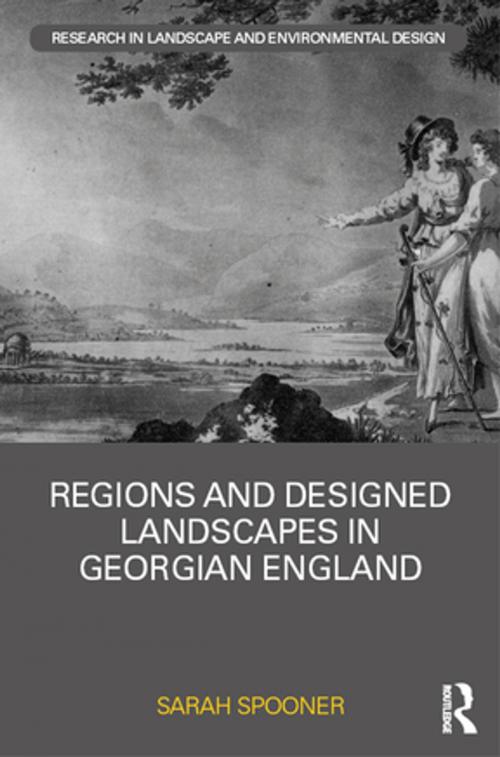Regions and Designed Landscapes in Georgian England
Nonfiction, Art & Architecture, Architecture, Landscape| Author: | Sarah Spooner | ISBN: | 9781317527404 |
| Publisher: | Taylor and Francis | Publication: | June 26, 2015 |
| Imprint: | Routledge | Language: | English |
| Author: | Sarah Spooner |
| ISBN: | 9781317527404 |
| Publisher: | Taylor and Francis |
| Publication: | June 26, 2015 |
| Imprint: | Routledge |
| Language: | English |
Garden design evolved hugely during the Georgian period – as symbols of wealth and stature, the landed aristocracy had been using gardens for decades. Yet during the eighteenth century, society began to homogenise, and the urban elite also started demanding landscapes that would reflect their positions.
The gardens of the aristocracy and the gentry were different in appearance, use and meaning, despite broad similarities in form. Underlying this was the importance of place, of the landscape itself and its raw material. Contemporaries often referred to the need to consult the ‘genius of the place’ when creating a new designed landscape, as the place where the garden was located was critical in determining its appearance. Genius loci - soil type, topography, water supply - all influenced landscape design in this period.
The approach taken in this book blends landscape and garden history to make new insights into landscape and design in the eighteenth century. Spooner’s own research presents little-known sites alongside those which are more well known, and explores the complexity of the story of landscape design in the Georgian period which is usually oversimplified and reduced to the story of a few ‘great men’.
Garden design evolved hugely during the Georgian period – as symbols of wealth and stature, the landed aristocracy had been using gardens for decades. Yet during the eighteenth century, society began to homogenise, and the urban elite also started demanding landscapes that would reflect their positions.
The gardens of the aristocracy and the gentry were different in appearance, use and meaning, despite broad similarities in form. Underlying this was the importance of place, of the landscape itself and its raw material. Contemporaries often referred to the need to consult the ‘genius of the place’ when creating a new designed landscape, as the place where the garden was located was critical in determining its appearance. Genius loci - soil type, topography, water supply - all influenced landscape design in this period.
The approach taken in this book blends landscape and garden history to make new insights into landscape and design in the eighteenth century. Spooner’s own research presents little-known sites alongside those which are more well known, and explores the complexity of the story of landscape design in the Georgian period which is usually oversimplified and reduced to the story of a few ‘great men’.















